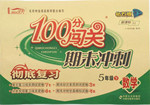题目内容
winter-swimming has become popular in Beijing. three years ago, few people would go swimming in the city waters. but now there is a winter-swimming
enthusiasts’club(冬泳爱好者协会)and it has more than 2,000 members. the oldest is 84 years of age and the youngest is only 7. The members are from all walks of life. They may be workers, peasants, soldiers, teachers, students....Though it is now the coldest part of the season and the water temperature in the city’s lakes is around 0°c, many winter-simmers still swim in the icy waters, even when it is snowing. They enjoy themselves in the lake, while the people by the side of the lake are wearing heavy clothes.
why are so many people interested in winter-swimming? Because winter-swimming can be good for one’s health.
Bei Sha is a good example. He is 69 years old, and he once suffered from heart trouble for 26 years. After ten years of winter-swimming he is now in good health. Scientists are now studying the effects of winter-swimming on health.
小题1:Guess what “the members are from all walks of life” means ______ .
小题2:Winter-swimming has become popular in Beijing because _______.
小题3:The best title for this passage should be ______.
enthusiasts’club(冬泳爱好者协会)and it has more than 2,000 members. the oldest is 84 years of age and the youngest is only 7. The members are from all walks of life. They may be workers, peasants, soldiers, teachers, students....Though it is now the coldest part of the season and the water temperature in the city’s lakes is around 0°c, many winter-simmers still swim in the icy waters, even when it is snowing. They enjoy themselves in the lake, while the people by the side of the lake are wearing heavy clothes.
why are so many people interested in winter-swimming? Because winter-swimming can be good for one’s health.
Bei Sha is a good example. He is 69 years old, and he once suffered from heart trouble for 26 years. After ten years of winter-swimming he is now in good health. Scientists are now studying the effects of winter-swimming on health.
小题1:Guess what “the members are from all walks of life” means ______ .
| A.The members do different jobs at different places. |
| B.They come from all parts of Beijing. |
| C.They are persons of different ages. |
| D.They are men and women , old and young. |
| A.more and more people like to swim in winter |
| B.it is more interesting than swimming in summer |
| C.winter-swimmers are brave men |
| D.winter-swimming does a lot of good to one’s health |
| A.People in Beijing Like Swimming in Winter |
| B.Winter-Swimming-----A Craze(狂热) in Beijing |
| C.People Benefit from Winter-swimming |
| D.Winter-Swimmers are Brave Men |
小题1:A
小题2:D
小题3:B
文章介绍了北京人所喜欢的冬泳运动。
小题1:A 猜测句意题。根据下文They may be workers, peasants, soldiers, teachers, students..可知参加冬泳的人来自各行各业,故A正确。
小题2:D 细节题。。根据第二段第2句Because winter-swimming can be good for one’s health.
小题3:B 主旨大意题。通读全文可知文章是关于北京人所喜欢的冬泳运动。
小题1:A 猜测句意题。根据下文They may be workers, peasants, soldiers, teachers, students..可知参加冬泳的人来自各行各业,故A正确。
小题2:D 细节题。。根据第二段第2句Because winter-swimming can be good for one’s health.
小题3:B 主旨大意题。通读全文可知文章是关于北京人所喜欢的冬泳运动。

练习册系列答案
 100分闯关期末冲刺系列答案
100分闯关期末冲刺系列答案
相关题目
